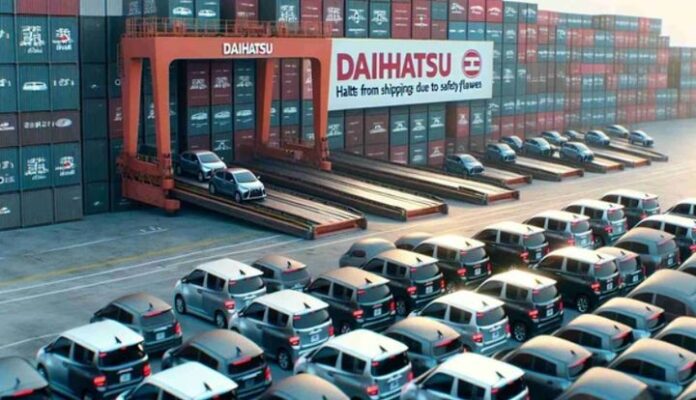Now it’s Malaysia’s turn to allow the resumption of sales for Toyota, Daihatsu, and Perodua car models involved in the safety inspection scandal, following Indonesia’s decision.
Malaysia has recently approved the resale of Toyota, Daihatsu, and Perodua car models on the list of safety inspection fraud by Daihatsu. Perodua, a local car brand in Malaysia, uses chassis and components provided by Daihatsu, making it also affected by the recent safety inspection fraud scandal.
Prior to that, Indonesia had already given the green light for the affected car models to continue production and distribution in the country shortly after the shocking car scandal was exposed. Daihatsu is the second best-selling brand in the Indonesian market, after its parent company Toyota. Key car models in this market, such as Avanza, Rush, Agya, and Calya are all under Toyota and Daihatsu. Therefore, the Indonesian government aims to resolve the issue quickly to minimize losses in the domestic car market.
Meanwhile, other countries, including Vietnam, are still waiting for safety inspection results before making a final decision on the distribution of affected car models. Currently, the manual transmission version of Toyota Avanza is suspended from sales in Vietnam. However, Toyota Vietnam confirmed that the automatic transmission version of Avanza and other Toyota car models developed by Daihatsu, such as Wigo, Veloz, and Yaris Cross, are not affected by the safety scandal and continue to be distributed as usual.
In its home country of Japan, Daihatsu has halted all production processes due to the safety inspection fraud scandal. This has a significant impact on the company as the domestic market currently accounts for about 60% of its car sales. According to Nikkei Asia, Daihatsu is estimated to incur a loss of 100 billion yen (172 trillion VND) due to the suspension of production plans as well as compensation for supplier damages.
Furthermore, the Japanese government has launched an investigation into Daihatsu to uncover the misconduct that has been ongoing for decades. Revocation of production licenses is also a possible penalty. This will pose numerous challenges for Daihatsu and even significantly impact its parent company, Toyota.
Daihatsu reported a total operating profit of 141.8 billion yen in 2022 (over 24 trillion VND). If the scandal’s impact pushes the total profit into negative territory, it will be the first time in 30 years that the company records a net loss in a financial year.
Similar scandals in recent years have caused significant damage to other Japanese car manufacturers. Hino Motors reported a net loss of 117.6 billion yen (equivalent to over 20 trillion VND) in the 2022 financial year after falsifying data on emissions and fuel efficiency. Mitsubishi Motors recorded a net loss of 198.5 billion yen (over 34 trillion VND) in the 2017 fiscal year due to a fuel efficiency data falsification scandal.
Thái Son (Tuoitrethudo)






























.jpg)
.jpg)
.jpg)















